 Image Credit: (Pixabay CC0)
Image Credit: (Pixabay CC0)
Between 10 and 14 December 2018, the LSE Review of Books blog has been running a Translation and Multilingualism Week. In this reading list, we recommend 10 previously reviewed books featured on the blog that have been published in translation.
If you are interested in this topic, all posts published as part of the week can be accessed here. If you would like to contribute on this topic in the future, please contact us at Lsereviewofbooks@lse.ac.uk.
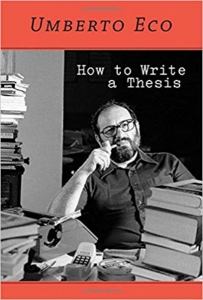 How to Write a Thesis. Umberto Eco (trans. by Caterina Mongiat Farina and Geoff Farina). MIT Press. 2015.
How to Write a Thesis. Umberto Eco (trans. by Caterina Mongiat Farina and Geoff Farina). MIT Press. 2015.
‘Be humble and prudent before opening your mouth, but once you open it, be dignified and proud.’ In its 23rd edition in Italy and translated into seventeen languages at the time this review was published, How to Write a Thesis has become a classic. This edition is its first, long-overdue publication in English. Vanessa Longden found that in addition to its witty one-liners, Eco’s book contains the bones on which to build research.
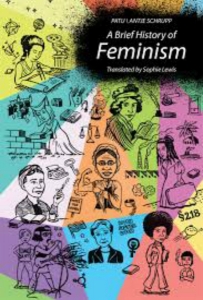 A Brief History of Feminism. Antje Schrupp, illustrated by Patu (trans. by Sophie Lewis). MIT Press. 2017.
A Brief History of Feminism. Antje Schrupp, illustrated by Patu (trans. by Sophie Lewis). MIT Press. 2017.
This graphic novel traces the development of feminism from antiquity to the present day. While the book is primarily limited to an account of the evolution of European, Western feminist movements, Sonia J. Wieser nonetheless recommended this as a fun, accessible and educational read that will leave readers entertained, angry and with a thirst to learn more.
If you are interested in the topic of this book, authors Olga Castro and Emek Ergun discuss their recent edited collection Feminist Translation Studies in an interview here.
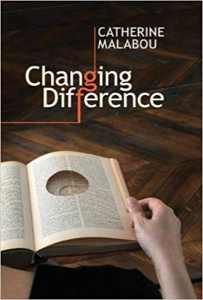 Changing Difference. Catherine Malabou (trans. by Carolyn Shread). Polity Press. 2011.
Changing Difference. Catherine Malabou (trans. by Carolyn Shread). Polity Press. 2011.
Changing Difference revisits feminist and philosophical debates on essentialism: the question of whether there are properties common to all women which suggest they belong together as a group, with profound implications for acting together as a political force. Alison Stone found that Catherine Malabou’s concept of ‘plasticity’ has considerable potential to advance our thinking about gender.
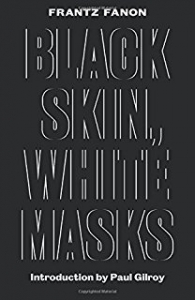 Black Skin, White Masks. Frantz Fanon (trans. by Charles Lam Markmann). Pluto Press. 2017 [1952].
Black Skin, White Masks. Frantz Fanon (trans. by Charles Lam Markmann). Pluto Press. 2017 [1952].
Black Skin, White Masks – first published in 1952 – offers a potent philosophical, clinical, literary and political analysis of the deep and enduring effects of racism and colonialism on the experiences, lives, minds and relationships of black people and people of colour. This book is ‘still a powerhouse’, wrote Leonardo Custódio.
If you are interested in this book, Kathryn Batchelor, Sue-Ann Harding and Christina Kullberg introduce their recent edited collection Translating Frantz Fanon Across Continents and Languages, which explores the translation history of Fanon’s Les Damnés de la terre, here.
 Finsternis in Deutschland. Was die Deutschen dachten. Interviews einer Engländerin 1934-1938. Ernestine Amy Buller (ed. by Kurt Barling and trans. by Michael Pfingstl). Elisabeth Sandmann Verlag. 2016.
Finsternis in Deutschland. Was die Deutschen dachten. Interviews einer Engländerin 1934-1938. Ernestine Amy Buller (ed. by Kurt Barling and trans. by Michael Pfingstl). Elisabeth Sandmann Verlag. 2016.
Finsternis in Deutschland is the first German translation of Darkness over Germany, Ernestine Amy Buller’s account of interviews undertaken in Germany between 1934-38. Originally published in 1943, this book not only contributes to historical research through a number of key insights, but is also a prescient read driven by a deeply humanitarian message, found Till Florian Tömmel.
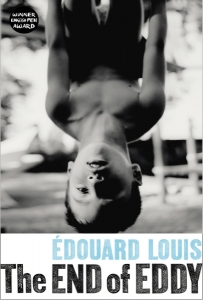 The End of Eddy. Édouard Louis (trans. by Michael Lucey). Penguin. 2017.
The End of Eddy. Édouard Louis (trans. by Michael Lucey). Penguin. 2017.
With The End of Eddy, Édouard Louis gives an autobiographical account of his experience of homophobia and economic inequality growing up in Hallencourt, a village in the north of France where many live below the poverty line. While the book has being widely praised for offering insight into current divisions within French society, Peter Carrol also welcomed it as an elegantly written contribution to contemporary LGBT literature.
If you are interested in this book, Michela Baldo, Jonathan Evans and Ting Guo discuss the interconnections between LGBTQ+ issues and translation in this feature essay here.
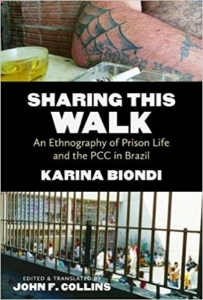 Sharing This Walk: An Ethnography of Prison Life and the PCC in Brazil. Karina Biondi (edited and trans. by John F. Collins). University of North Carolina Press. 2016.
Sharing This Walk: An Ethnography of Prison Life and the PCC in Brazil. Karina Biondi (edited and trans. by John F. Collins). University of North Carolina Press. 2016.
This ethnographic study of São Paulo’s state prisons focuses particularly on the prison gang Primeiro Comando da Capital (PCC). This elegant and rigorously argued book offers a compelling critique of existing depictions of prison life in Brazil and challenges entrenched understandings of ‘organised crime’, found Eraldo S. Santos.
 Gore Capitalism. Sayak Valencia (trans. by John Pluecker). Semiotext(e)/MIT Press. 2018.
Gore Capitalism. Sayak Valencia (trans. by John Pluecker). Semiotext(e)/MIT Press. 2018.
Gore Capitalism explores how hyperconsumerist neoliberal capitalism has transformed violence into a commodity to be traded and utilised, with a particular focus on Mexico, and Tijuana specifically. While a complex and at times challenging read, this is a thorough, carefully argued and and well-structured account of the centrality of violence to the development and growth of capitalism today, recommended Kate Bailey.
If you are interested in this book, we spoke to translator John Pluecker in an interview here.
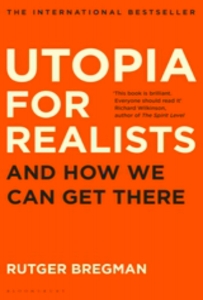 Utopia for Realists and How We Can Get There. Rutger Bregman (trans. by Elizabeth Mentone). Bloomsbury. 2017.
Utopia for Realists and How We Can Get There. Rutger Bregman (trans. by Elizabeth Mentone). Bloomsbury. 2017.
With Utopia for Realists, Rutger Bregman offers a new blueprint for constructing a better society for all, advocating the implementation of seemingly ‘utopian’ ideas, such as universal basic income, along the way. This is an assured and ambitious book, wrote Peter Carrol, that deserves to be widely read.
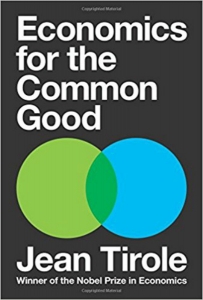 Economics for the Common Good. Jean Tirole (trans. by Stephen Randall). Princeton University Press. 2017.
Economics for the Common Good. Jean Tirole (trans. by Stephen Randall). Princeton University Press. 2017.
Jean Tirole – a winner of the Nobel Prize in Economics – engages with some of the most pressing economic issues, ranging from regulation to digital economies to finance. The intellectual breadth of the book is impressive, observed Joel Krupa and Peter Urmetzer, and its accessible approach will likely spark sound and thoughtful debate on economic questions for specialists and general readers alike.







